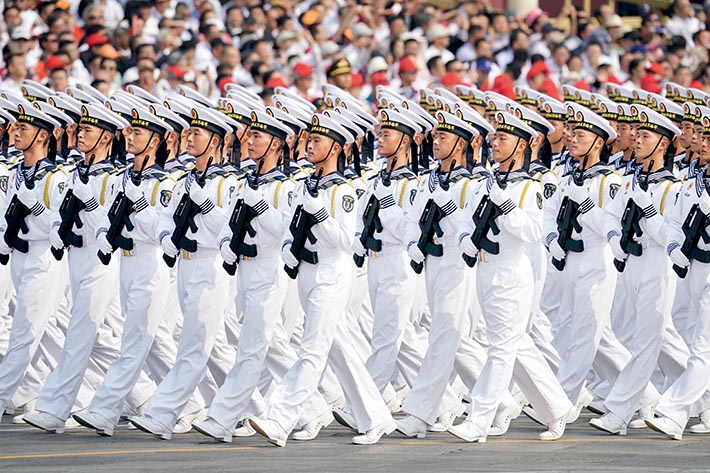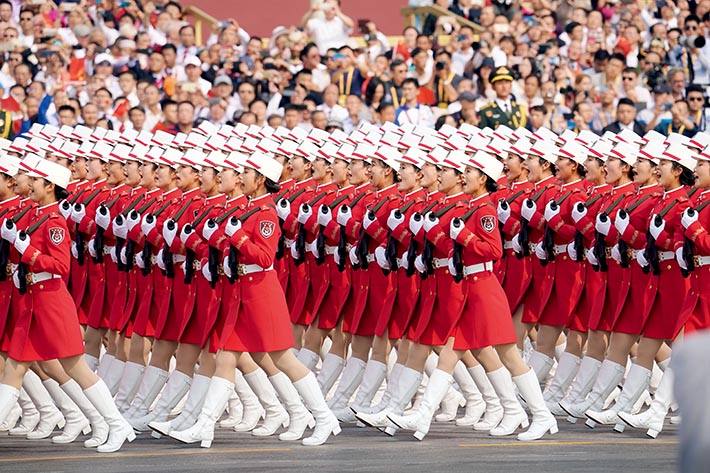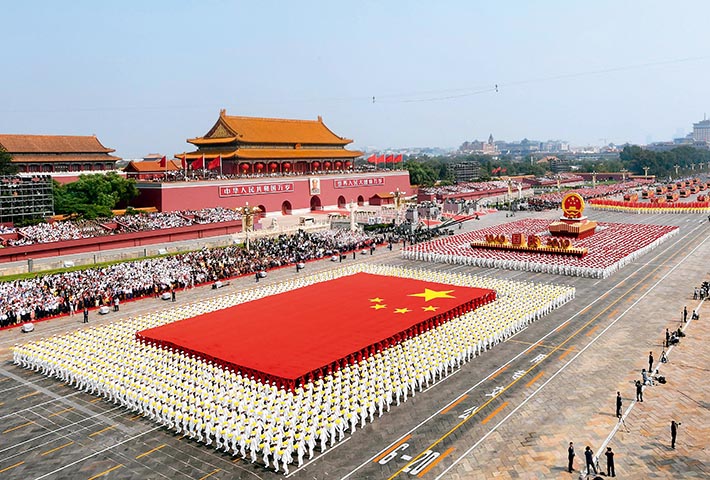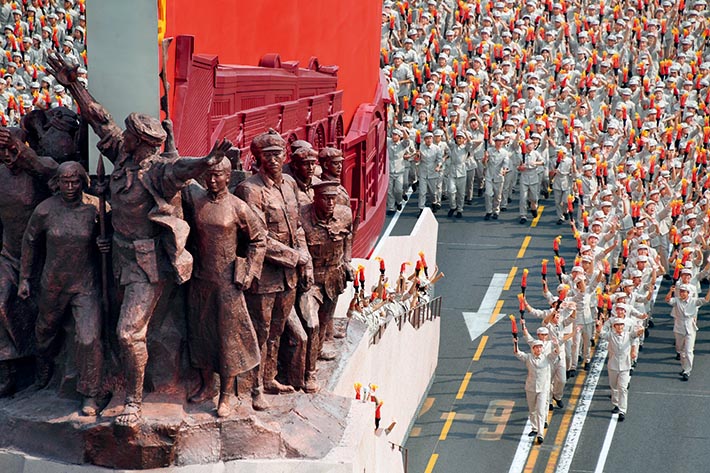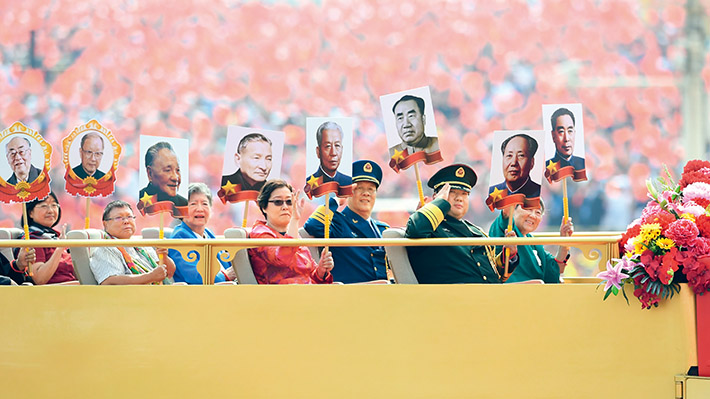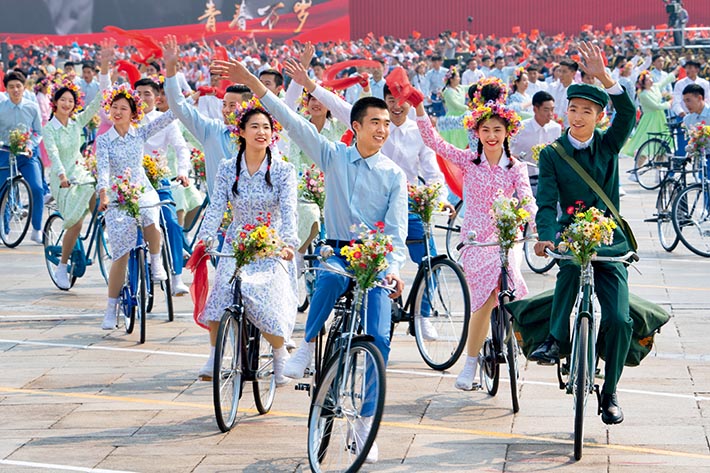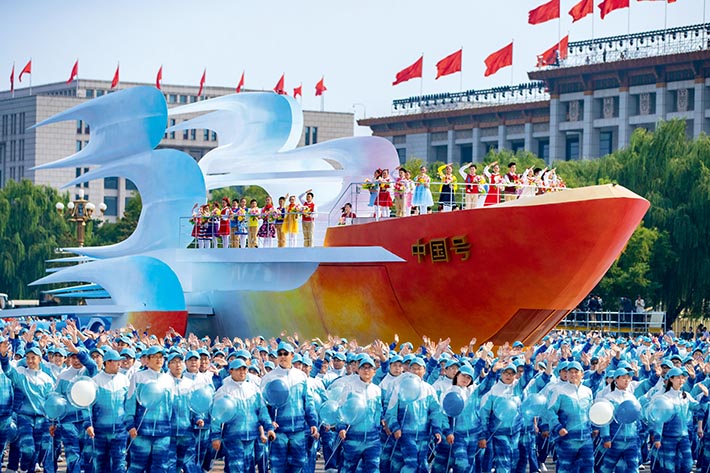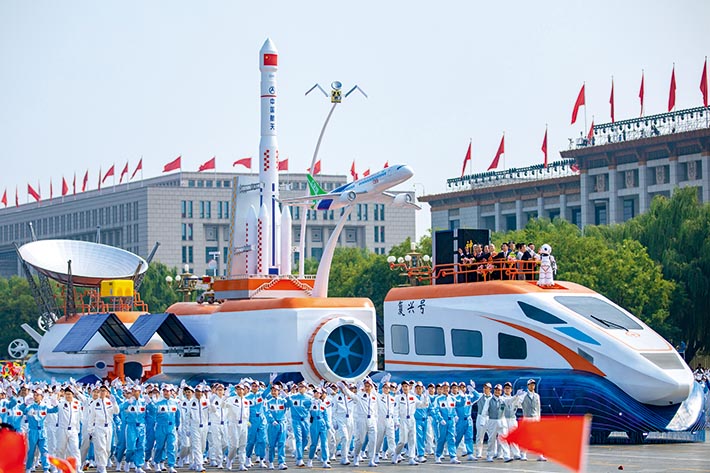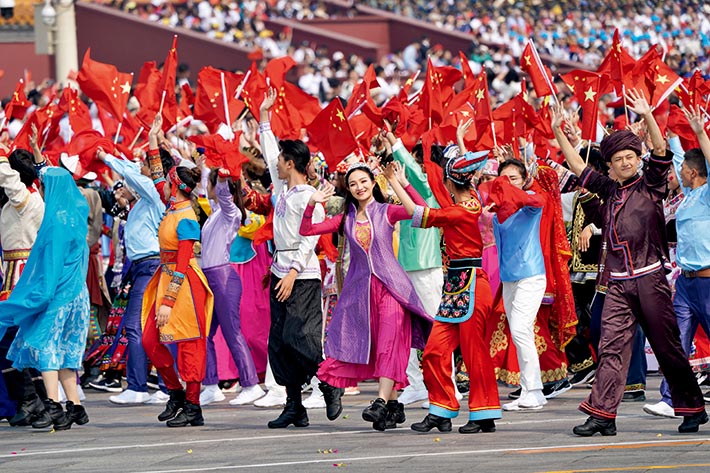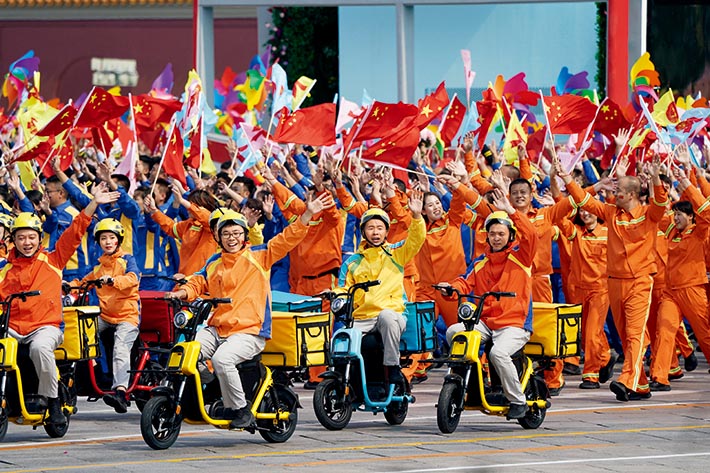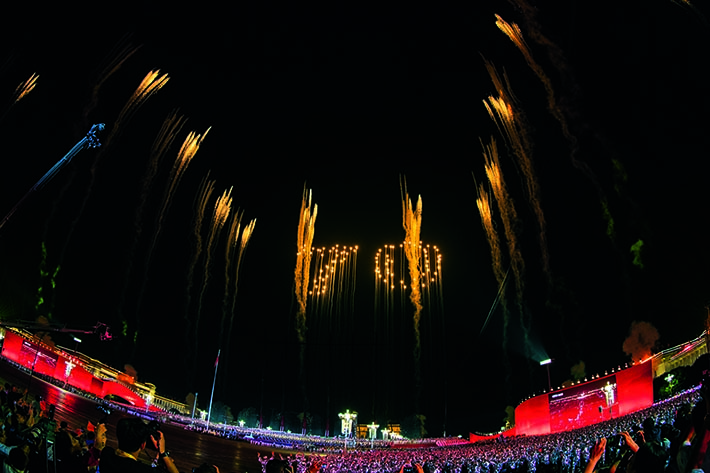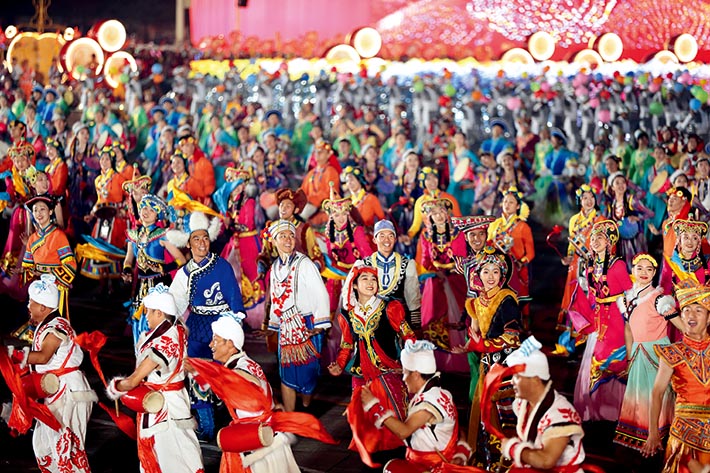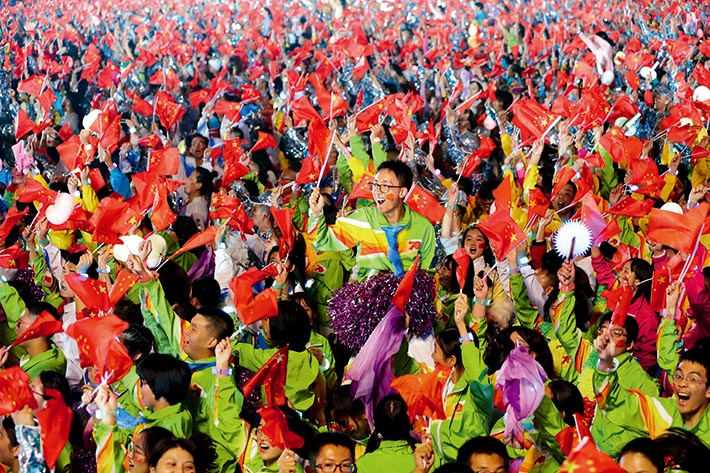70 Years Forward
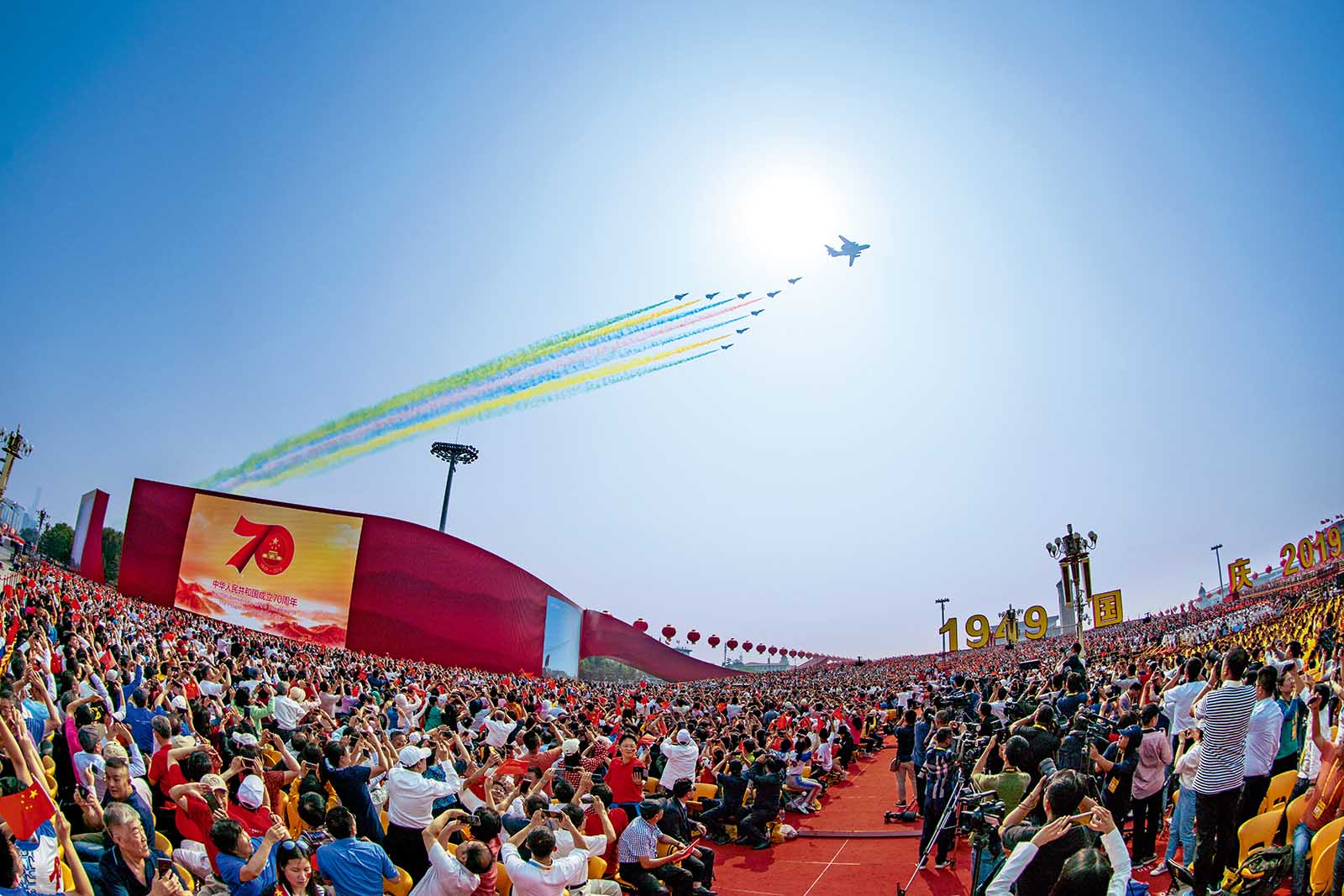
The People’s Republic of China (PRC) celebrated its 70th birthday on October 1, 2019 with grand celebrations including a military parade, a massive pageant and an evening gala at Tian’anmen Square in Beijing, the capital of the country. The nearly 1.4 billion people residing on the vast land of the Eastern country shared the pride and happiness.
The Chinese people have always been yearning for and pursuing peaceful and beautiful lives. Over the past seven decades, the Chinese nation has made a great leap from standing up to growing rich and becoming strong under the leadership of the Communist Party of China (CPC).
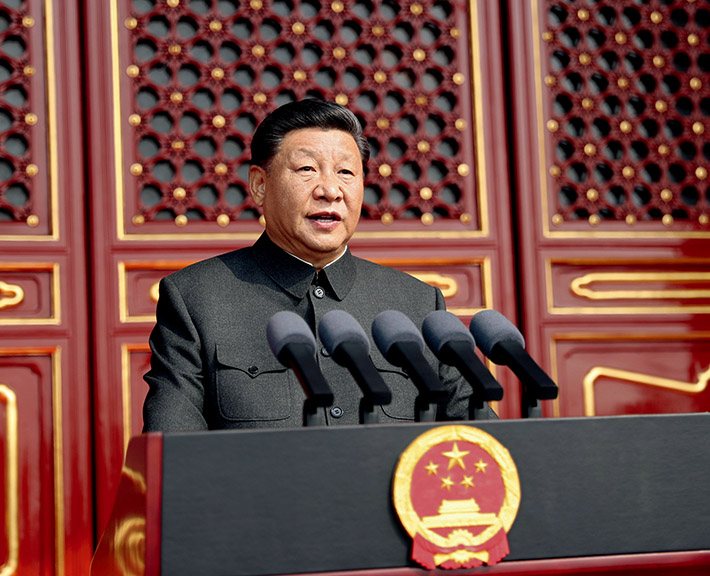
Standing Up
After 1840, China was plagued by frequent invasions which resulted in a shattered economy and a destitute populace. The CPC led the Chinese people through the painstaking struggle to overthrow the “three mountains” placed on their heads, namely imperialism, feudalism and bureaucrat-capitalism. On October 1, 1949, Chairman Mao Zedong declared the founding of the PRC from the Tian’anmen Rostrum to the entire world as the Chinese nation entered a new epoch of development.
When the PRC was new, passion for constructing a socialist country spread quickly across the country. The Chinese people were eager to see it take on a new look. Evidence of such unvarnished emotion remains in the names of those born in the era—today nearly one million Chinese people share the given name “Jianguo,” which means “building the nation,” most born in the 1950s and 1960s.
After its founding, the PRC carried out the land reform that abolished landlord class ownership and distributed farmland to peasants. It also completed socialist transformation of agriculture, handicrafts and capitalist industry and commerce, which laid the foundation for the country’s industrialization drive. From the First Automobile Works in Changchun, the Daqing Oilfield and the Panzhihua Iron and Steel Base to the Nanjing Yangtze River Bridge and the Red Flag Canal, numerous construction projects sprang up across the country.
China recovered its social production rapidly and improved its people’s livelihood drastically, but its planned economic system also encountered setbacks. Until the reform and opening up in 1978, the people were struggling to eat their fill and dress warmly.
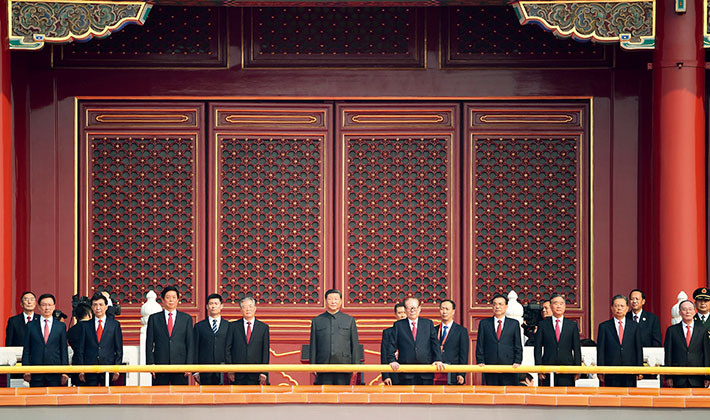
Growing Rich
China’s reform and opening up was a historic decision made by the CPC that significantly liberated and developed social productivity. The implementation of household responsibility system in rural areas effectively motivated farmers, and township enterprises mushroomed across the country. As the reform of the economic system deepened, the non-public sector also grew strong.
China has been opening its door wider and wider by popularizing its successful experience with pilot zones. After the first group of special economic zones led by Shenzhen was introduced in 1980, more and more cities along the coasts, borders and rivers followed suit. With booming foreign trade and investment, those regions developed into commercial hubs connecting the Chinese mainland with international markets.
Since joining the World Trade Organization in 2001, China has become increasingly integrated into the world economy. China became the world’s largest trader in goods in 2018 when its total imports and exports with over 230 trading partners surpassed US$4.6 trillion.
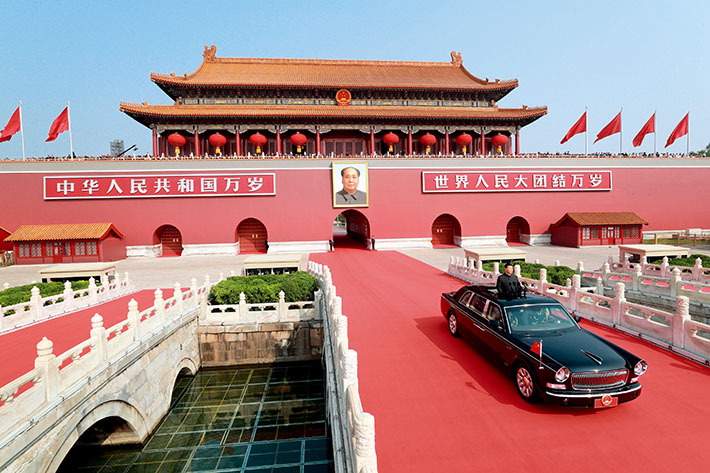
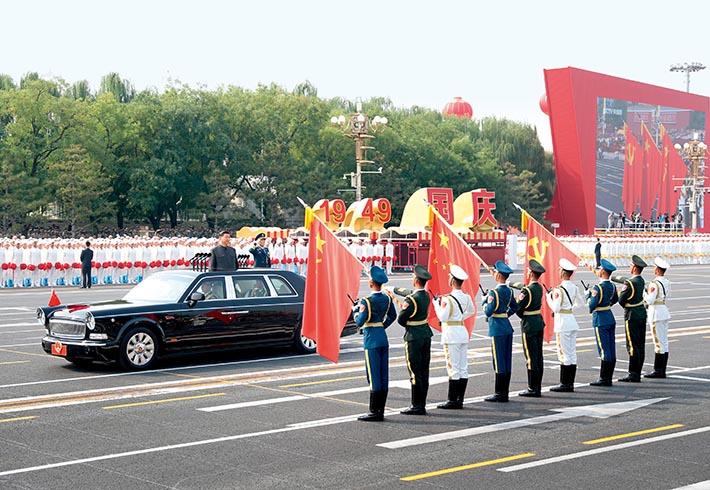
Becoming Strong
Since the 18th CPC National Congress in 2012, guided by Xi Jinping Thought on Socialism with Chinese Characteristics for a New Era, the Party and the country have made historic achievements.
With the economic prosperity of China, the living standards of its people have been constantly enhanced. In 2018, China’s per capita gross national income reached US$9,732, higher than that of middle-income countries. On average, every 100 urban households owned 243.1 mobile phones and 41 private cars, and for every 100 rural households, the numbers were 257 and 22.3, respectively. Over the past six years, the urban and rural income gap has been narrowing.
China has established a preliminary social security system covering elderly care, medical care, minimum subsistence, housing and education—the largest in scale and covering the biggest population in the world. It should be noted that the basic medical insurance had covered more than 1.3 billion people by the end of 2018, almost everyone in the country. Average life expectancy in China increased from 35 years in 1949 to 77 years in 2018.


The largest poverty alleviation campaign in human history is going on in China as well. China is the first developing country to realize the UN Millennium Development Goals in terms of poverty reduction. More than 10 million Chinese people rose and remained above the poverty line every year from 2012 to 2018. As China implements its target poverty alleviation strategy, the country is drawing closer to reaching its goal of lifting all rural people still living under the current poverty line out of poverty by 2020.
Over the past several decades, China has completed the development process which developed countries took hundreds of years to achieve. In the process, the country also faced the challenge of balancing economic development and ecological protection. The country has long been exploring the circular economy and seeking clean and low-carbon development. Especially after the 18th CPC National Congress, China has promoted green development and the concept that “clear waters and lush mountains are invaluable assets,” which has resonated widely with the public. Environmental pollution is being effectively addressed.
Looking back over the past 70 years, from establishing socialism as China’s basic system, to embarking on the path of socialism with Chinese characteristics with the implementation of the reform and opening-up policy, and then to a new era for socialism with Chinese characteristics, China has never slowed down its pace of reforming. Now reform is more in-depth and more comprehensive in economic, political, cultural, social and ecological sectors. By 2020, the Chinese people will witness the realization of an exciting goal—completing the building of a moderately prosperous society in all respects.
As Chinese President Xi Jinping said, “China’s yesterday has been inscribed in human history while China’s today is being created in the hands of hundreds of millions of Chinese people. China will surely have an even brighter future.”
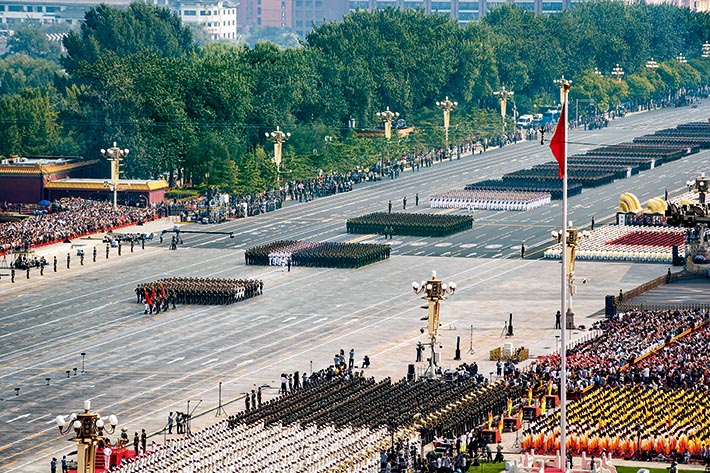
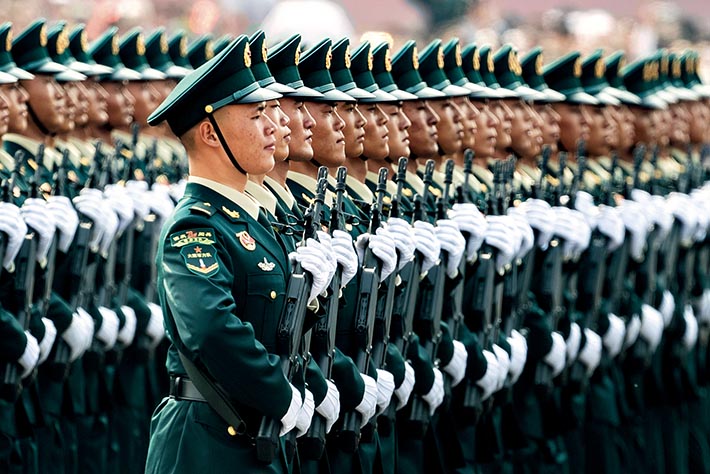
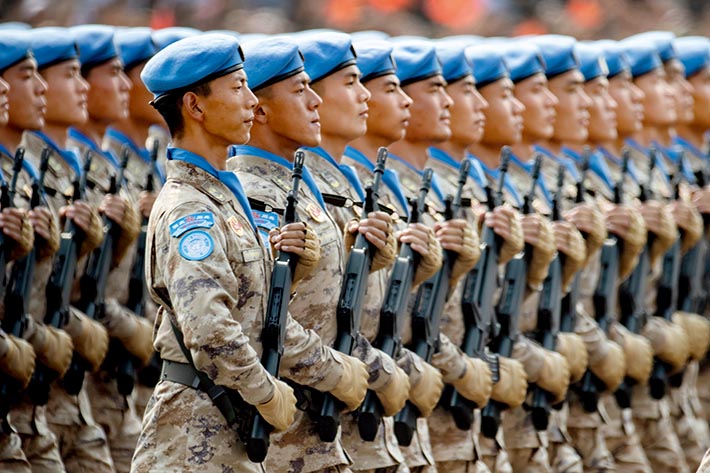
by Zheng Liang/China.org.cn
